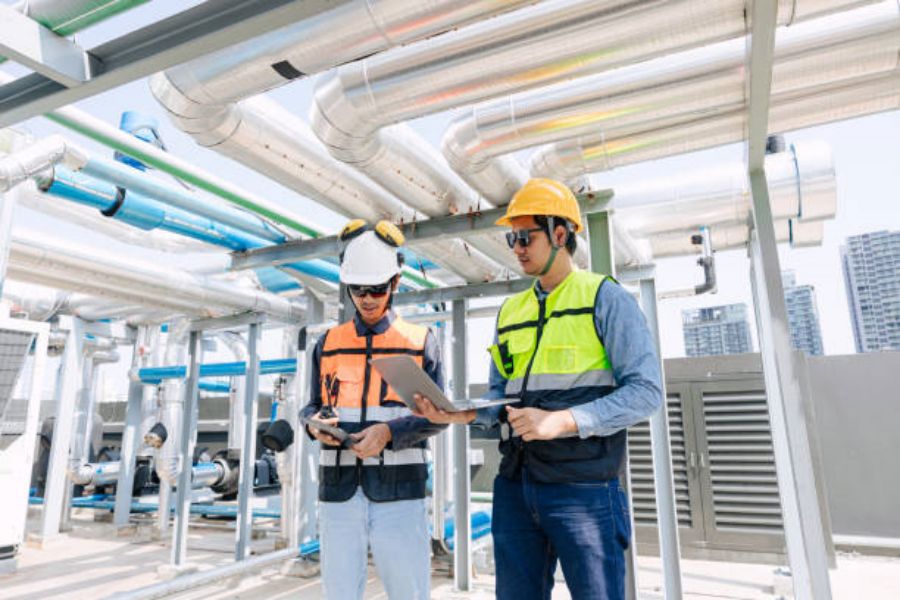Why Do You Need an aquarium water chiller?
Keeping the water temperature in your aquarium at an optimal level is crucial for the health and well-being of your aquatic pets. While some species of fish can tolerate a wide range of temperatures, many tropical fish and marine invertebrates require specific temperature conditions to thrive. This is where an aquarium water chiller becomes an essential piece of equipment for any serious hobbyist or professional aquarist.
How Does an Aquarium Water Chiller Work?
An aquarium water chiller is a device designed to lower the temperature of the water in your aquarium. It operates on the principle of heat exchange, utilizing a refrigeration system to remove heat from the water and dissipate it into the surrounding environment. The chiller's compressor and evaporator work together to cool the water, ensuring it stays within the desired temperature range.
Factors to Consider Before Choosing an Aquarium Water Chiller
When selecting an aquarium water chiller, there are several factors to take into consideration:
- Size and Capacity: The size and capacity of the chiller should be suitable for your aquarium. Consider the volume of water in your tank and choose a chiller that can handle it efficiently.
- Temperature Range: Different chillers have different temperature ranges. Ensure that the chiller you choose can achieve and maintain the desired temperature range for your specific aquatic species.
- Energy Efficiency: Look for a chiller that is energy efficient to minimize its impact on your electricity bill. Energy-saving features such as variable speed fans and digital temperature controllers can help reduce energy consumption.
- Noise Level: Some chillers can produce noise during operation. If noise is a concern for you, opt for a chiller with noise-reducing features or consider placing it in a location where the noise won't be bothersome.
- Reliability and Durability: Investing in a high-quality, reliable chiller is essential to avoid frequent breakdowns and ensure longevity. Look for chillers with good customer reviews and warranties.
Benefits of Using an Aquarium Water Chiller
Using an aquarium water chiller offers several benefits for both the aquarist and the aquatic inhabitants:
- Healthy Fish and Invertebrates: Maintaining the ideal water temperature promotes the overall health and well-being of your fish and invertebrates, reducing stress and minimizing the risk of disease.
- Optimal Oxygen Levels: Cooler water holds more dissolved oxygen, vital for the respiration of aquatic organisms. An aquarium water chiller ensures that oxygen levels remain at an optimal level, even during hot weather.
- Preventing Algae Growth: Algae thrives in warmer water, and excessive algae growth can be detrimental to the aesthetics and balance of your aquarium. By keeping the water temperature lower, you can inhibit algae growth and maintain a clean and clear tank.
- Regulating Biological Processes: Many biological processes, such as metabolism and reproduction, are temperature-dependent. With a chiller, you have precise control over the temperature, allowing you to create the ideal conditions for your specific aquatic species.
Tips for Maintaining and Using an Aquarium Water Chiller
To ensure the optimal performance and longevity of your aquarium water chiller, follow these tips:
- Regular Cleaning: Clean the chiller regularly to remove any build-up of dirt, debris, or algae that may hinder its performance. Follow the manufacturer's instructions for cleaning and maintenance.
- Proper Placement: Place the chiller in a well-ventilated area, away from direct sunlight and other heat sources. This will help the chiller operate efficiently and prevent overheating.
- Monitor Temperature: Regularly check the temperature of your aquarium water using a reliable thermometer. This will allow you to detect any fluctuations and adjust the chiller settings if needed.
- Consider a Backup: If maintaining a stable temperature is critical for your aquarium's inhabitants, consider having a backup chiller or a generator in case of power outages.
Aquarium Water Chiller Options for Different Tank Sizes
Depending on the size of your aquarium, you may require a specific type of water chiller:
- Small Tanks: For aquariums with a capacity of up to 20 gallons, a thermoelectric water chiller may be sufficient. These chillers are compact, energy-efficient, and suitable for smaller setups.
- Medium Tanks: Tanks ranging from 20 to 100 gallons may benefit from a drop-in coil chiller or a compact refrigeration unit. These options provide more cooling power for larger volumes of water.
- Large Tanks: Aquariums larger than 100 gallons may require a commercial-grade water chiller or a remote condenser unit. These options can handle the cooling demands of larger systems.
Conclusion
An aquarium water chiller is an invaluable tool for maintaining the optimal temperature in your aquarium. By carefully selecting the right chiller for your tank size and considering factors such as energy efficiency and noise level, you can create a comfortable and healthy environment for your aquatic pets. Regular maintenance and monitoring will ensure the chiller functions optimally, allowing you to enjoy your aquarium for years to come.
